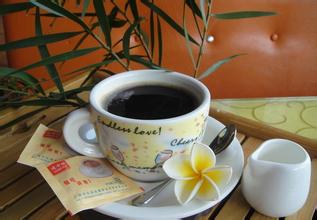A brief introduction to the origin, development, history and culture of Sidamo Guji boutique coffee beans in Dharma, Essex.

Coffee producing countries: Africa Africa, Ethiopia Ethiopia
Coffee Manor: Guji Guji, Hambella Wamena area, Dimtu City, buku able Manor
Coffee variety: Heirloom, native to Ethiopia
Production altitude: 2250-2350m
Quality level: G1
Treatment: Natural tanning (African drying bed)
Factory name: coffee factory address: Guangzhou Yuexiu District Baoan Qianjie 10 Qianjie Cafe manufacturer contact: 020-38364473 shelf life: 90 net content: 227g packing: raw and ripe degree of bulk coffee beans: whether coffee beans contain sugar: sugar-free origin: Ethiopia roasting degree: light roasting
Ethiopian Sidamo Shakisso Natural
Country: Ethiopia
Producing area: Guji region
Altitude: 2250-2350
Treatment: insolation
Variety: local native species Heirloom
Producer: local small farmers
Flavor: passion fruit, rose, strawberry jam
The coffee flavor of Sidamo is very diverse, because of the different soil composition, regional microclimate and countless native coffee varieties, the coffee produced in each urban area has obvious differences and characteristics. The Sidamo producing area (Sidama) is located in southern Ethiopia. The industry here is dominated by agriculture, and the coffee-growing area is located around the East African Great Rift Valley (Great Rift Valley). The coffee flavor of Sidamo is very diverse, because of the different soil composition, regional microclimate and countless native coffee varieties, the coffee produced in each urban area has obvious differences and characteristics. The Sidamo producing area (Sidama) is located in southern Ethiopia. The industry here is dominated by agriculture, and the coffee-growing area is located around the East African Great Rift Valley (Great Rift Valley).
Award-winning situation
Cup test flavor: passion fruit, rose flavor, strawberry jam, sweet and sour berries, peach pulp, black tea tail rhyme
2016 / 2017
Ethiopia National Taste of Harvest Competition champion
Winner of the Ethiopian Coffee Competition during the harvest season in 2016ache 2017
2017 Regional Africa Taste of Harvest Competition runner-up
Runner-up in 2017 African Coffee Competition
Huakui treatment plant is located in buku abel village, which is 2200 meters above sea level. In the harvest and treatment season (December-January), its unique growth environment and natural climate created the unique flavor of Huakui. The sugar content of the red fructose we are picking is more than 30 before we start sun treatment. In the first two days of the sun, we should ensure the humidity of the red fruit so that the fructose begins to ferment fully. At the same time, the high-altitude geographical location, so that the night temperature of the treatment plant can be reduced to about 12 degrees Celsius, and will not produce the smell of excessive fermentation because the temperature is too high. When the temperature is relatively high at noon, we will cover in time to prevent sunburn of red fruit.
In order to prevent sudden rain at night, it will be wrapped in thick plastic sheeting. In this way, the red fruit is fermented and dehydrated at a lower temperature. After 18 days of sun treatment, when the moisture content of raw coffee beans is reduced to about 13%, stop sun treatment, put it in sacks, put it in the warehouse under natural conditions of 12-22 degrees Celsius and 40-50% humidity, raise raw beans and further dehydrate for about 50 days. When the moisture content of raw beans reaches about 10, the transportation treatment plant will be shelled and screened for sale.
Important Notice :
前街咖啡 FrontStreet Coffee has moved to new addredd:
FrontStreet Coffee Address: 315,Donghua East Road,GuangZhou
Tel:020 38364473
- Prev

Cultivation situation of Micro-La Sachi Fine Coffee beans in tanning Tank Manor in Costa Rica, geographical location and climate
Country: Costa Rica level: SHB production area: central valley baking degree: moderate baking treatment: sun treatment varieties: Vera Shachi Manor: tank Manor Flavor: green
- Next

Brief introduction of planting Market Price of Superior Coffee Bean varieties of Sidamo Guji in Dharma, Essex
In order to prevent sudden rain at night, it will be wrapped in thick plastic sheeting. In this way, the red fruit is fermented and dehydrated at a lower temperature. After 18 days of sun treatment, when the moisture content of raw coffee beans decreased to about 13%, stop the sun treatment, put them in sacks, put them into the warehouse under the natural conditions of 12-22 degrees Celsius and 40-50% humidity, raise raw beans for about 50 days and further remove them.
Related
- Detailed explanation of Jadeite planting Land in Panamanian Jadeite Manor introduction to the grading system of Jadeite competitive bidding, Red bid, Green bid and Rose Summer
- Story of Coffee planting in Brenka region of Costa Rica Stonehenge Manor anaerobic heavy honey treatment of flavor mouth
- What's on the barrel of Blue Mountain Coffee beans?
- Can American coffee also pull flowers? How to use hot American style to pull out a good-looking pattern?
- Can you make a cold extract with coffee beans? What is the right proportion for cold-extracted coffee formula?
- Indonesian PWN Gold Mandrine Coffee Origin Features Flavor How to Chong? Mandolin coffee is American.
- A brief introduction to the flavor characteristics of Brazilian yellow bourbon coffee beans
- What is the effect of different water quality on the flavor of cold-extracted coffee? What kind of water is best for brewing coffee?
- Why do you think of Rose Summer whenever you mention Panamanian coffee?
- Introduction to the characteristics of authentic blue mountain coffee bean producing areas? What is the CIB Coffee Authority in Jamaica?

